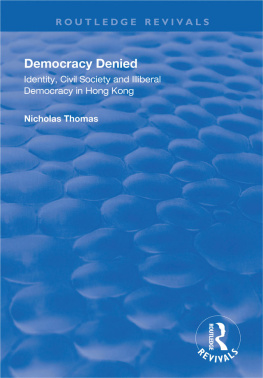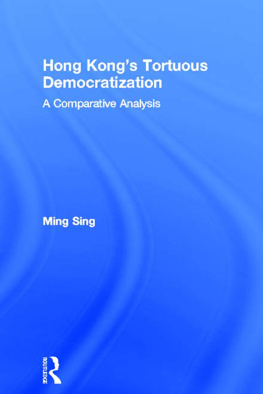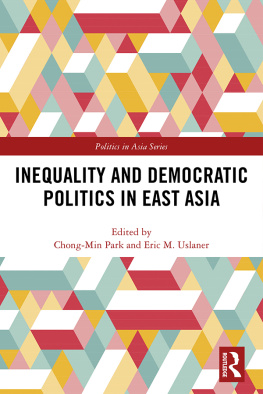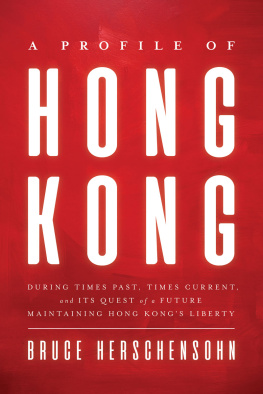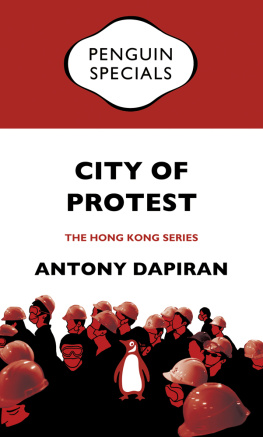Hong Kongs New Identity Politics
Ip uses Hong Kong as a case study in how the production of the desire for the local lies at the heart of global cultural economy.
Perhaps more so than most places, the construction of a local identity in Hong Kong has come about through a complex interplay of neoliberalism, post-coloniality and reaction to the consequent anxieties and uncertainties. As its importance as an economic center has diminished and its relationship with Mainland China has become more strained, its people have become more concerned to define a Hong Kong identity that can be defended from external threat. Ip analyses the working and reworking of power relations and modes of agency in this global city.
A must read for scholars of Hong Kong politics and society as well as a fascinating case study for scholars of identity politics as a global phenomenon.
Iam-chong Ip is Assistant Professor and Associate Head of Cultural Studies at Lingnan University, Hong Kong.
Routledge Contemporary China Series
Internet Video Culture in China
YouTube, Youku, and the Space in Between
Marc L. Moskowitz
Securitization of the Umbrella Movement in Hong Kong
The Rise of a Patriotocratic System
Cora Y.T. Hui
Non-Governmental Orphan Relief in China
Law, Policy and Practice
Anna High
Living in the Shadows of Chinas HIV/AIDS Epidemics
Sex, Drugs and Bad Blood
Shelley Torcetti
Chinas Quest for Innovation
Institutions and Ecosystems
Shuanping Dai and Markus Taube
Ecology and Chinese-Language Ecocinema
Reimagining a Field
Edited by Sheldon H. Lu and Haomin Gong
Civilian Participants in the Cultural Revolution
Being Vulnerable and Being Responsible
Francis K.T. Mok
Hong Kongs New Identity Politics
Longing for the Local in the Shadow of China
Iam-chong Ip
For more information about this series, please visit: www.routledge.com/Routledge-Contemporary-China-Series/book-series/SE0768
Hong Kongs New Identity Politics
Longing for the Local in the Shadow of China
Iam-chong Ip
First published 2020
by Routledge
2 Park Square, Milton Park, Abingdon, Oxon OX14 4RN
and by Routledge
52 Vanderbilt Avenue, New York, NY 10017
Routledge is an imprint of the Taylor & Francis Group, an informa business
2020 Iam-chong Ip
The right of Iam-chong Ip to be identified as author of this work has been asserted by him in accordance with sections 77 and 78 of the Copyright, Designs and Patents Act 1988.
All rights reserved. No part of this book may be reprinted or reproduced or utilized in any form or by any electronic, mechanical, or other means, now known or hereafter invented, including photocopying and recording, or in any information storage or retrieval system, without permission in writing from the publishers.
Trademark notice: Product or corporate names may be trademarks or registered trademarks, and are used only for identification and explanation without intent to infringe.
British Library Cataloguing-in-Publication Data
A catalogue record for this book is available from the British Library
Library of Congress Cataloging-in-Publication Data
A catalog record for this book has been requested
ISBN: 978-0-367-41054-4 (hbk)
ISBN: 978-0-367-81446-5 (ebk)
Typeset in Galliard
by Wearset, Boldon, Tyne and Wear
Contents
Engagement in dialogues is indispensable to intellectual endeavors. My colleagues at the Lingnan University offered numerous insightful and creative suggestions when I presented some chapters in seminars: Roberto Castillo, Stephen Chan, Angeline De Dios, Hui Po-keung, Lau Kin-chi, Law Wing-sang, Lisa Leung, Li Siu-leung, Tejaswini Niranjana, Denise Tang, Yvonne Yau, and Yoon Soo Ryon. I would also like to express my special gratitude to Stephen Chan, Cheung Siu-keung, Jamie Doucette, Lui Tai-lok, and Andy Wang who commented on some sections of my draft chapters. Naturally, they should not be held accountable for the books errors, flaws, and deficiencies, which are definitely my responsibility. Thanks must also go to Yick Man-kin, Corex Tang, Huang Jiangling, Cheung Choi-wan who helped me collect and translate some empirical data. Finally, I owe my deepest debts to my partner Lam Oi-wan, whose caring support and patience are indispensable for the completion of this book project.
draw on a Chinese article published in the Reflexion 26, 2014, pp. 153168 under the title Nativist Right and Economic Right: The Case of an Online Controversy (co-authored with Yick Man-kin).
This work has been supported by the Early Career Scheme sponsored by the Research Grants Council of Hong Kong (Project no.: 23600616) and three Faculty Research Grants sponsored by the Lingnan University (No. 101877, 101868, and DA14A8).
Midway along the journey of our life
I woke to find myself in some dark woods,
For I had wandered off from the straight path.
(Inferno, Divine Comedy, Dante Alighieri)
Two turns
Should an underdog give up the fight? Lets put aside the talk of international politics favoring China rather than Hong Kong. While the police had guns and already fired (in the Mongkok riot in February 2016), why didnt the rioters run away? As a Chinese saying goes, The commander of the forces of a large state may be taken down, but the will of a man cannot be taken from him. Fighting requires the will to live. This could not be taken away by guns and bullets. One would not give up resistance even in a one-sided game.
(Lu, 2016, my translation)
Lu, a Hong Kong pro-nativist critic, explained why people engaged in the Mong Kok riot in 2016. He portrayed the rioters as fighters in the name of Hong Kong against the rule of China. The remarks above help paint a picture of an angry young man hurling bricks to police on the street of Mong Kok. But Lu admitted that it is a struggle doomed to failure. My question is: Why was he so keen to do something in vain or self-defeating? What Lu believes and the politico-economic setting confronting Hong Kong are not even a loose fit. They are contradictory. His words, rather than prompting me to challenge his argument or advocacy, remind me of something at odds with his seemingly unrealistic account of Hong Kong.
The early attention to Hong Kong identity was unanimously informed by a sociological conception of identity, described by Stuart Hall (1996) as a somewhat old-fashioned idea, in one way or another. It is an alignment of subjective feelings with the city in its post-war era. For example, Tai-lok Lui (2002[1997]), Eric Ma (1999), and others focus on the economic changes in the 1970s and delineate the late colonial contexts in which we derived our sense of belonging to this city from popular culture and project ourselves into a cultural identity. Murray Maclehose, who became the Governor of Hong Kong at the time, rolled out social policies, launched a massive public housing program, and set up the Independent Commission Against Corruption. Hereafter, his legacy has defined Hong Kongers self-understanding. Stephen Chan (1995: 24) conceptualizes Hong Kong identity, rather than as an ideology engineered by the state, as a tacit popular acceptance of the existing regime of power in its final years and subsequently perpetuated by the Beijing government and its proxies in Hong Kong. Other critics, despite their post-colonial and postmodern rhetorics, portray a Hong Kong identity implicit in the broader socio-cultural contexts. Rey Chow (1992: 158), focusing on an image of Hong Kong as being doubly victimized by the two dominating states, Britain and China, renders Hong Kongs coloniality/post-coloniality a third space, serving as the forefront of Chinese modernity. Ackbar Abbas (1997) positions Hong Kong as a non-space or a culture of disappearance within the global cultural economy. In a more recent study, Hong Kong is posited as an object of desire functioning as a satellite city of modernity between highly developed areas and developing countries in the world (Ma, 2012). The accounts above, despite their different concerns and conceptual tools, share a discursive impetus to locate Hong Kong in an institutional or geopolitical context.






